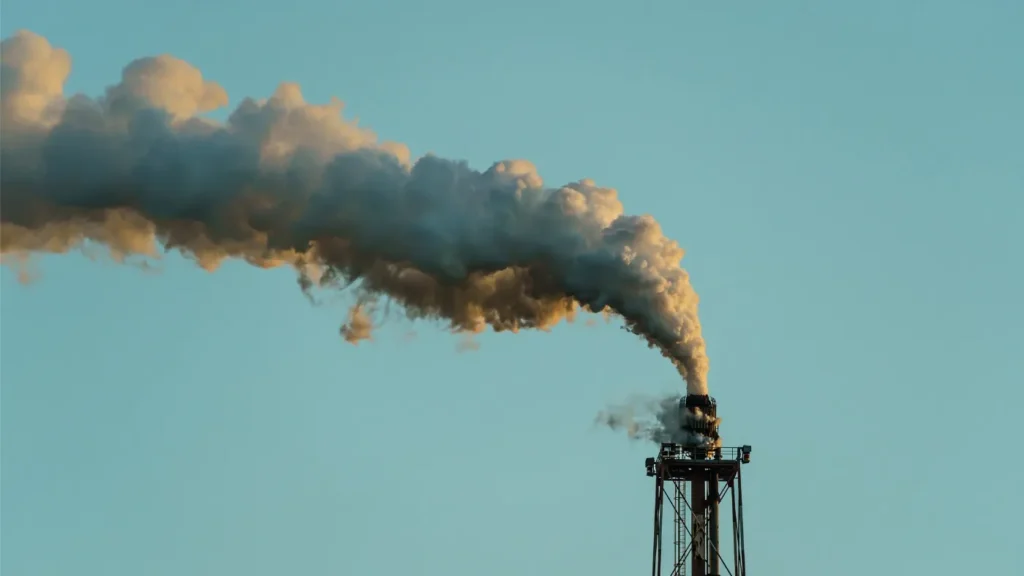Biden-Harris Administration Announces $100 Million to Transform Climate Pollution into Sustainable Products

|
Listen to this story:
|
Funding from President Biden’s Investing in America Agenda Will Transform Carbon Pollution into Useful Products, Curbing Greenhouse Gas Emissions and Maximizing Public Health
The U.S. Department of Energy (DOE) announced it is making $100 million available through President Biden’s Investing in America agenda to support states, local governments, and public utilities in purchasing products derived from converted carbon emissions. The goal is to speed up adoption of advanced carbon management technologies, creating a market for environmentally sustainable alternatives in fuels, chemicals, and building products sourced from captured emissions from industrial and power generation facilities. This effort aligns with the Biden-Harris Administration’s historic climate and clean energy agenda.
“President Biden’s Investing in America agenda is helping transform harmful pollutants into beneficial products,” said U.S. Secretary of Energy Jennifer M. Granholm. “The funding announced today will scale up carbon management technology, lowering costs, and increasing access to clean energy. State and local grants, made possible through the Bipartisan Infrastructure Law, will help demonstrate the economic viability of innovative technologies, resulting in huge net reductions in lifecycle greenhouse gas emissions, while bringing new, good-paying jobs and cleaner air to communities nationwide.”
States, local governments, and public utilities purchase large quantities of products, therefore providing an incentive to purchase products made from carbon emissions is an important method to drive emissions reductions. This program will help to promote and deploy more sustainable product alternatives that reduce net carbon emissions and lessen environmental and health risks related to global warming.
See related article: Biden Admin Targets Use of Climate-Warming Industrial Gases
Carbon Utilization Procurement Grants
Funded by the Bipartisan Infrastructure Law and managed through DOE’s Office of Fossil Energy and Carbon Management (FECM), the Carbon Utilization Procurement Grants program will help offset 50% of the costs to states, local governments, and public utilities or agencies to procure and use products developed through the conversion of captured carbon dioxide and carbon monoxide emissions. The commercial or industrial products to be procured and used under these grants must demonstrate a significant net reduction in greenhouse gas emissions compared to incumbent products via a life cycle analysis (LCA). The LCAs are checked for conformance and approved by DOE’s National Energy Technology Laboratory (NETL). Vendors may submit LCA data on the greenhouse gas emissions reductions of their carbon conversion products via NETL’s Utilization Procurement Grants website.
To ensure that the benefits of the President’s Investing in America agenda is received in every pocket of the nation, applications for this funding opportunity must submit Community Benefit Discussions that carefully address the societal considerations and impacts of their proposed projects, emphasizing active engagement with communities. Applicants must explain how projects are expected to deliver economic and environmental benefits and mitigate impacts, including disadvantaged communities; conduct community and stakeholder engagement; incorporate diversity, equity, inclusion, and accessibility; and promote workforce development and quality jobs. Projects selected under this opportunity will be required to develop and implement strategies to ensure strong community and worker benefits, and report on such activities and outcomes.
DOE’s Office of Fossil Energy and Carbon Management (FECM) minimizes environmental and climate impacts of fossil fuels and industrial processes while working to achieve net-zero emissions across our economy. Priority areas of technology work include carbon capture, carbon conversion, carbon dioxide removal, carbon dioxide transport and storage, hydrogen production with carbon management, methane emissions reduction, and critical minerals production.










